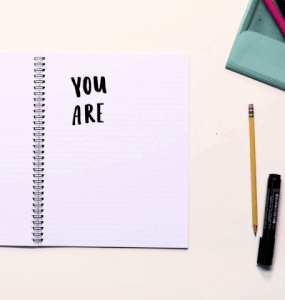Parenting(Age 5 to 8) | Academic | General | Parenting(Age 9 to 12) | Parenting(Age 13 to 16) | Apr 22, 2021
Here’s Everything You Need To Know About Dyscalculia And Math Difficulties

Math is all about topics relating to quantity, space, structure, and change. It is a science that deals with the logic of shape and quantity. It is also an abstract subject and for students, learning Math can be simplified if they can relate it to their life.
As the subject becomes more advanced and difficult to understand, many students might find themselves needing more hours of hard work and practice. Children with Dyscalculia are likely to have difficulty remembering the basic concepts of Math and may lag in understanding the concepts.
Now, What Do We Understand By Dyscalculia?
Dyscalculia is a specific learning disability that affects a child’s ability in learning, understanding, and performing Math or other number-based topics. A young child would have trouble recognizing numbers and slows down in learning and counting of numbers. This effect of Dyscalculia doesn’t stop in the Math class. But it extends in children when they are having difficulty remembering directions, phone numbers and even getting easily frustrated and this may lead to Math anxiety.
People may confuse Dyscalculia with Maths anxiety, but it is not the same. Math anxiety is a panic stage that arises in some people when they are solving a problem, whereas dyscalculia is a critical difficulty in people while making arithmetic calculations. Many children face problems while solving a Math problem but for some, that might go beyond frustration.
Moreover, if those Math troubles are serious and lasting then it can be said to Dyscalculia. This learning disability would not only mean having problems in the Math class but it’s possible to have issues in learning other aspects as well. But a kid can excel in other subjects and have low grades in Math and other Math-based classes.
Dyscalculia In Kids And Adults
Dyscalculia is a condition that makes it hard for a child to solve and do Math. Difficulty in Math can happen at any level. It can be as hard as learning addition as it is to learn trigonometry. Children having this specific learning disability may lose track while counting. Even their basic skills such as number skills may not work which can make them lack behind in their classes. A kid having dyscalculia may have a substantial amount of Math anxiety dealing with numbers and through which they might go into a panic stage while doing Math-related problems.
According to some researchers, Dyscalculia in children is estimated to be between 5% to 10%. Researchers also suggest that it is common as dyslexia, a reading disorder.
Children who have a hard time dealing with Math may continue to battle even as adults. Dyscalculia in adults can also be seen and is known as “acquired dyscalculia”. Adults exhibit some typical signs of Dyscalculia like difficulty in counting backward. They may find it hard to remember basic facts with a poor sense of numbers and estimations and might have weak mental arithmetic skills. In adults, addition is represented as a default calculation which they find difficult to solve as a sign of dyscalculia. They may also experience a high degree of Mathematics anxiety in comparison to children.
Supporting Your Child and Students
There is no identified test for Dyscalculia. But families and teachers can help the child get the required help. Students with learning difficulties can face stress and frustration. There is a need for increased emotional and educational support in their homes.
If your kid has a hard time dealing with numbers, then visit the doctor to know about any medical issues like hearing or vision impairment that may be affecting their ability to learn. Then consult their teachers to ascertain where they are struggling and what can be done to improve that. If the child is having issues in other areas as well, then his/her complete learning profile needs to be maintained.
After all the groundwork is done, talking to an educational specialist or professional is the best option for the child. They are the ones who can talk to the child and evaluate or test their Math abilities.
The test for evaluating includes computation skills which measure the ability to do the following:
– Math
– Math fluency, which is the ability to recall basic facts
– A mental computation that checks the ability to do math problems in your head
– And quantitative reasoning, which measures the ability to understand and solve problems.
These specialists then design specific learning plans, Math learning games and encourage the child to practice the subject regularly.
Conclusion
Your child may have lower self-esteem and higher Math anxiety due to Dyscalculia. As a parent, some things that would boost your child’s morale are:
– Talking to them about their disability and teaching them ways to manage their anxiety.
– Praising them for their hard work would only encourage them and would, in turn, fasten their treatment.
– If they want to use their fingers or a rough paper for calculations, let them and ensure that they have an easy-to-use calculator with them .
– Talk to their teachers and ask them to give the child extra attention during the class.
Dyscalculia is like disliking Math. Having dyscalculia doesn’t mean that one can’t learn the subject. With experienced tutors, good instructions, and regular practice, children with dyscalculia can make a lasting pace with Math.
















Post a Comment: